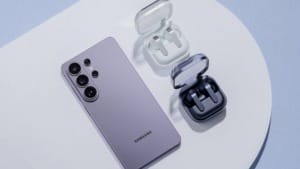Apple’s next-generation CarPlay sparks division among carmakers
Apple’s new CarPlay Ultra creates mixed reactions among carmakers, with some embracing it and others hesitant to give up dashboard control.

Apple is moving full speed ahead with its latest innovation—CarPlay Ultra—but not every car manufacturer is racing to join the journey. As a driver, you might soon notice that not all new vehicles will support the upgraded CarPlay experience, depending on which automaker you choose.
Table Of Content
CarPlay Ultra is designed to go far beyond simple phone mirroring. It takes over multiple screens in the car, including the instrument cluster and climate controls, offering a more connected and immersive driving experience. You’ll be able to see speed, control your radio, adjust the temperature, and more—all from a familiar Apple interface.
But this bold step is stirring up mixed reactions in the auto world.
Automakers react with a mix of excitement and hesitation
The Financial Times reports that Apple’s push for broader adoption is being met with various responses. Some carmakers are enthusiastic and plan to bring CarPlay Ultra into future models. Porsche and Mercedes-Benz, for example, have welcomed the integration of Apple’s system into their vehicles.
Others, however, are far more cautious. General Motors has publicly chosen a different direction, phasing out CarPlay support entirely to develop its system with Google. These companies invest heavily in their digital platforms and see Apple’s involvement as a possible threat to their control over the user experience.
Then there are the silent observers—major names like Toyota and Volkswagen—who have yet to confirm their position. Apple has not revealed any partnerships with them, and it remains unclear whether they will allow CarPlay Ultra in their cars. So, if you’re considering buying from these brands, you may have to wait and see how things unfold.
Drivers want it, but carmakers wish to control
As someone who might already use CarPlay daily, you know how useful and intuitive it can be. Research consistently shows drivers prefer Apple’s system over most built-in infotainment software. Many even say they wouldn’t buy a car without it.
This puts automakers in a challenging position. On one hand, they want to meet customer expectations. On the other hand, they’ve invested millions into building systems that offer similar services, including software updates, entertainment features, and digital assistant tools.
Allowing Apple to override these systems risks making those investments less valuable. More importantly, it raises concerns about data sharing. Vehicle data—location, driving patterns, and usage habits—is helpful for automakers. Before agreeing to Apple’s terms, many insist on clearer standards for how that data will be handled and shared.
The road ahead for Apple and your next car
CarPlay Ultra is designed with the future in mind. If you want a fully integrated, user-friendly driving experience, you’ll want to know which car brands are adopting Apple’s new system.
But for now, there’s no one-size-fits-all answer. Carmakers’ responses are varied—some are ready to integrate, some are building alternatives, and others are still watching from the sidelines.
As Apple continues to roll out CarPlay Ultra, you can expect further negotiations behind the scenes. Whether Apple softens its approach to attract more partners or whether automakers adjust to rising consumer demand, one thing is sure: the battle for your dashboard is just beginning.
















